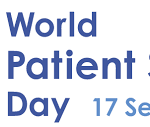

Every year the World Maritime Day is celebrated to mark the contribution of the international maritime industries, particularly the shipping industry, to the global economy. The main aim of World Maritime Day is the make aware of the importance of shipping protection, maritime security, and the marine environment. World Maritime Day is celebrated on every last week of September.
Date of World Maritime Day
This year World Maritime Day 2022 will be celebrated on 29th of September.
More than 80% of global trade is carried by international shipping to citizens and societies around the world. Shipping is the most efficient and cost-effective form of foreign transport for the majority of goods, offering a safe and inexpensive way of carrying goods internationally, promoting trade and helping nations and peoples to prosper.
The United Nations has introduced World Maritime Day, through the International Maritime Organization (IMO). The day is to celebrate the contribution of the international maritime industry, especially in the shipping sector, to the global economy. On 17 March 1978, World Maritime Day was first observed. The day marks the entry into force of the IMO Convention in 1958. The date of the event held varies from country to country and year to year, but the last week of September always takes place.
Theme of World Maritime Day 2022
This year the theme of World Maritime Day 2022 is – “New technologies for greener shipping”.
The 2022 World Maritime theme, “New technologies for greener shipping,” reflects this imperative to aid in the environmentally responsible transformation of the maritime industry to a brighter, more equitable future. The focus on greener, more sustainable construction in the wake of a global pandemic is a natural outgrowth of this year’s theme, which emphasizes the necessity of a sustainable maritime sector.
The pandemic of COVID-19 has demonstrated the professionalism and dedication of the two million seafarers serving in the merchant fleet worldwide. The shipping sector has been carrying more than 80 percent of global trade, including essential medical supplies, food and other basic goods, crucial to the COVID-19 response and recovery – but hundreds of thousands of mariners face a humanitarian crisis in the absence of several months’ contracts from the ships they are using. This needs to be addressed as a matter of urgency by governments which appoint seamen as vital workers and ensure safe crew changes.
With the help of the IMO regulatory structure, the shipping industry has already begun the move towards this sustainable future. The IMO has adopted and will continue to establish action to reduce greenhouse gas emissions, reduce the sulfur content of fuel oil on boards, enforce the Ballast Water Management Convention, protect polar regions, reduce sea litters, increase shipping efficiency through electronic information exchange, respond to the challenges of shipping digitalization and boost the participation of shippers.
In the coming years, fostering sustainable maritime transport and maritime sustainable growth is one of IMO’s main priorities. The IMO will therefore be supporting its commitments to establish the institutional framework needed for the global green and sustainable marital, in the form of energy conservation, new technology and innovation, maritime education and training, maritime safety, maritime management and maritime infrastructure creation; development and implementation of global standards covering these and other issues.
Swikriti Dandotia













